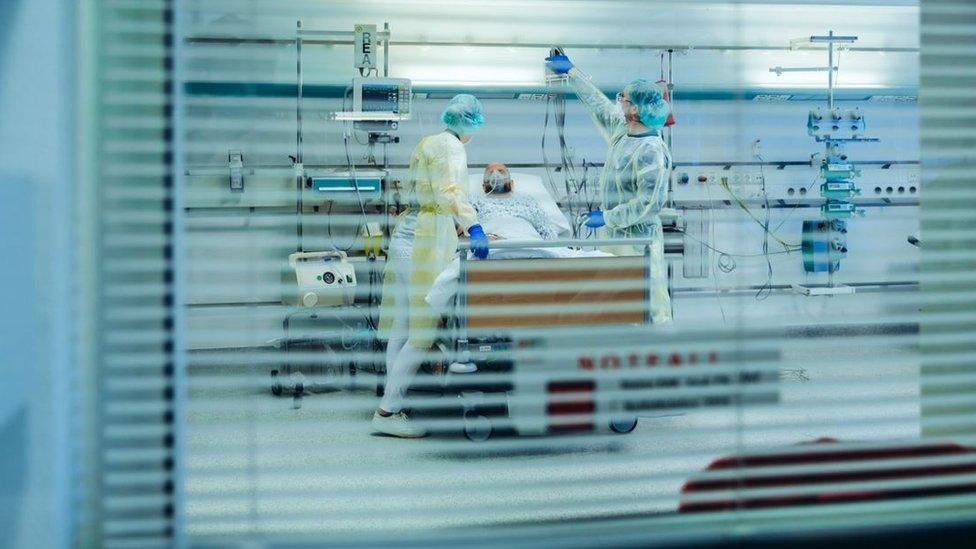Morriston Hospital bans visitors as Covid and winter bugs rise
- Published
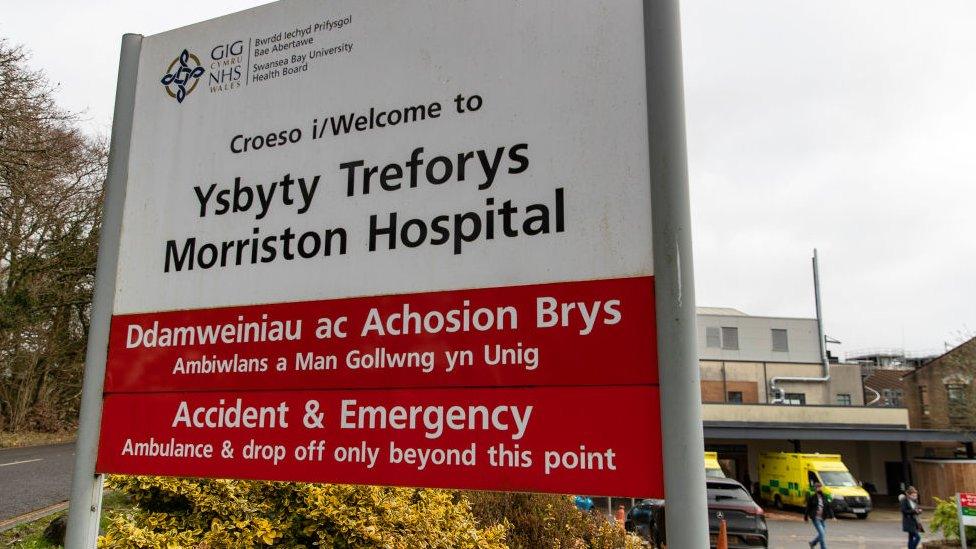
Visitors have been temporarily banned from Morriston Hospital in Swansea
Visitors have been banned from Morriston Hospital in Swansea as bacterial and viral infections continue to rise.
Seven wards have been closed because of infections caused by norovirus, Covid, flu and Clostridium difficile, external.
Swansea Bay University Health Board said routine visiting would be paused from 08:00 GMT on Wednesday until further notice.
Only carers or those visiting patients at the end of life are allowed.
Patients with suspected norovirus have also been asked to stay away from the hospital's emergency department.
In a statement, the health board said: "Visiting will be restricted to 'visiting with a purpose'.
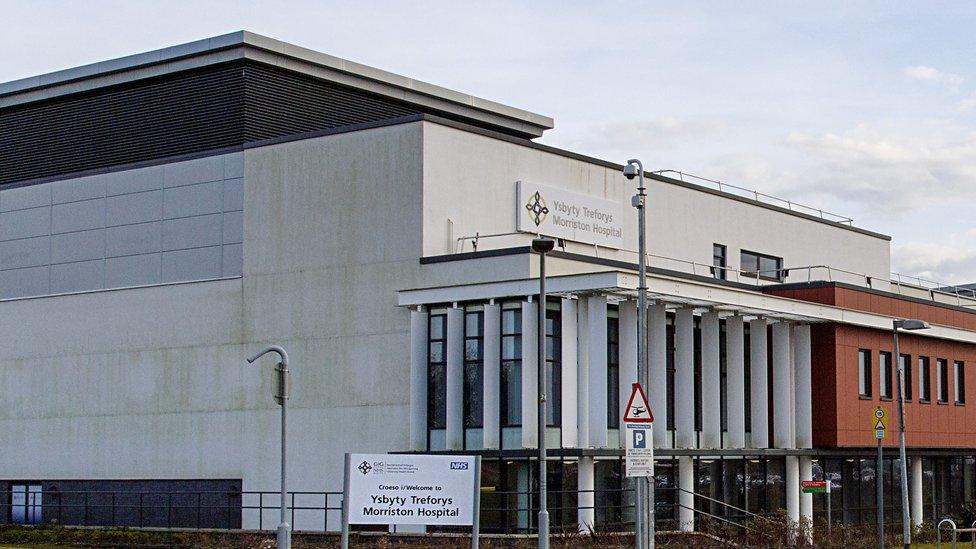
Only carers or those visiting end-of-life patients are allowed
"This means that visiting will still be allowed for patients who are at the end of life, or the last days of life; or for carers and relatives providing practical help and care for the patient when they visit - for example help with mealtimes and hydration, or support for patients with dementia or other clinical needs.
"This visiting should be agreed in advance in liaison with the ward manager.
"Parents can still visit their children, but we would ask that this is restricted to one parent at a time."
The health board said anyone with symptoms of illnesses, such as diarrhoea and vomiting, fever and coughing, should not visit.
Essential support assistants for specific reasons, such as support workers or interpreters, will still be allowed, as they are not classed as visitors.
"We are also reminding people to avoid coming to the emergency department if they have norovirus symptoms - diarrhoea and vomiting, stomach cramps or aching limbs," the health board said.
"This tummy bug is unpleasant but usually goes away on its own after a couple of days with no lasting harm.
"However for vulnerable hospital patients whose immune systems might not be as strong, norovirus can be more serious, and you could pass the virus to other patients and to staff."
Related topics
- Published9 December 2023
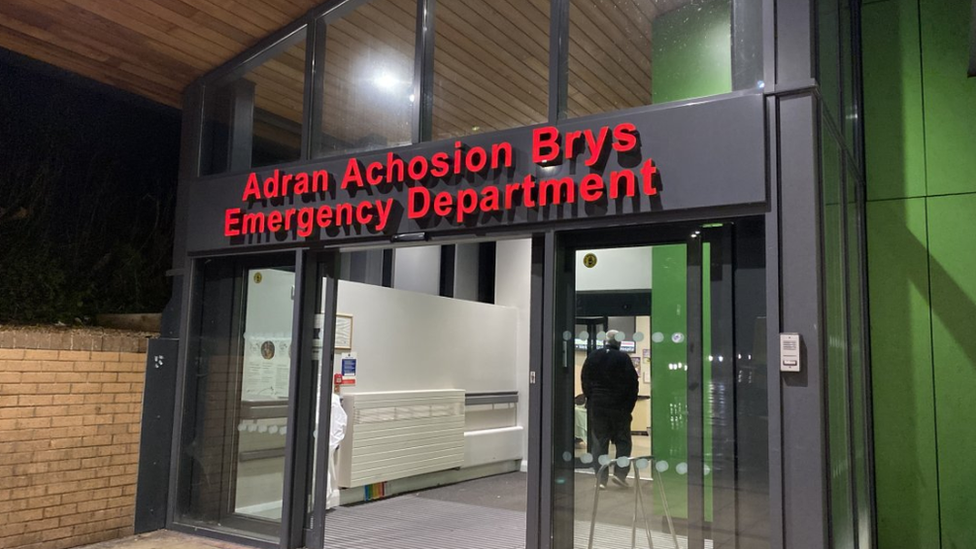
- Published18 December 2017
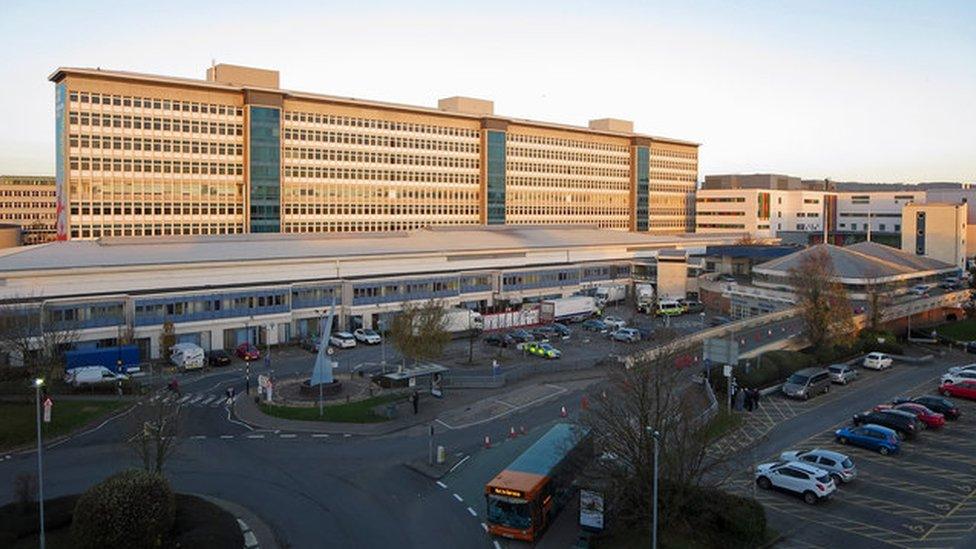
- Published27 October 2021
